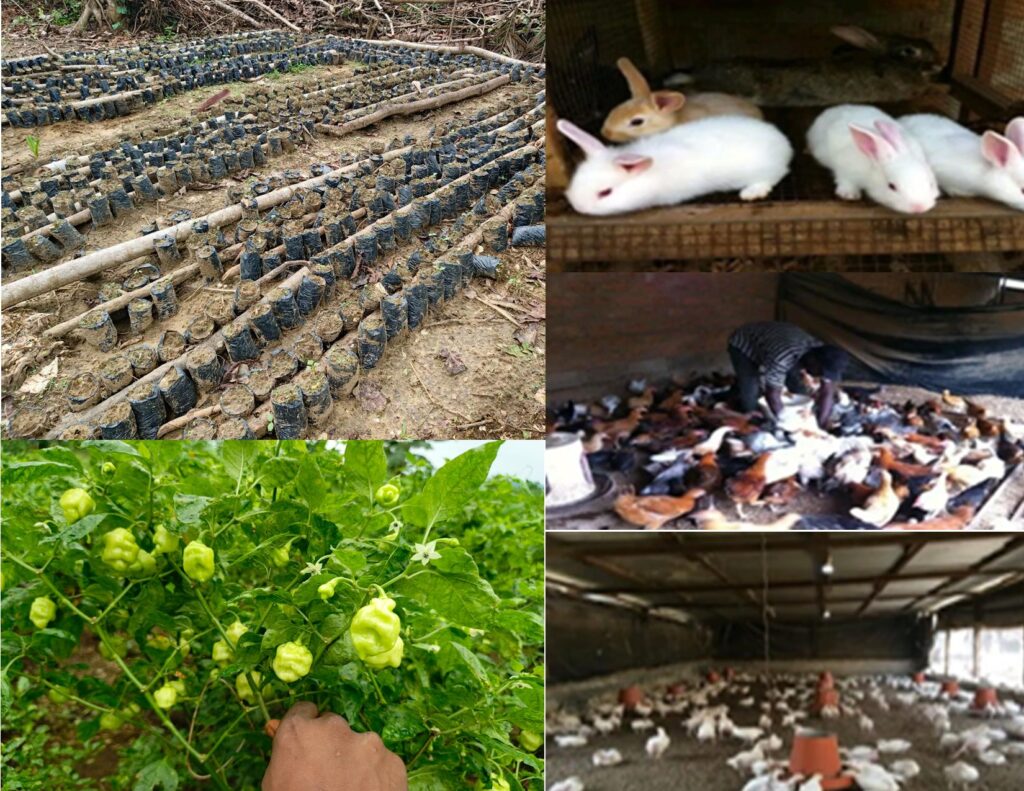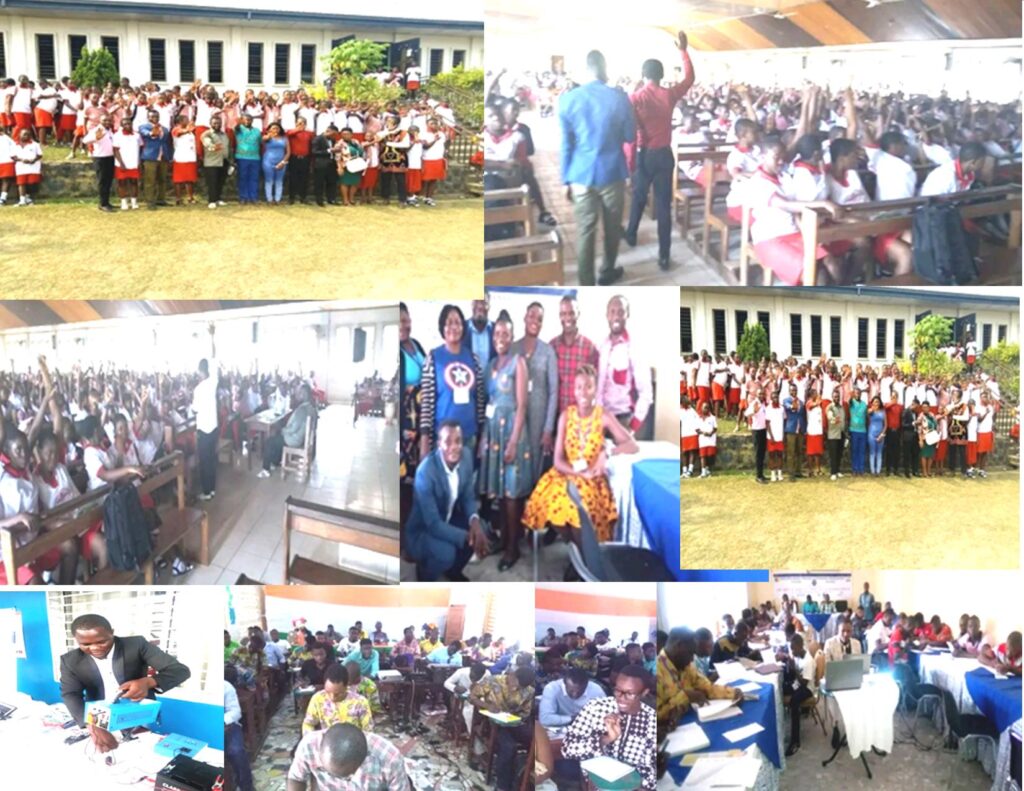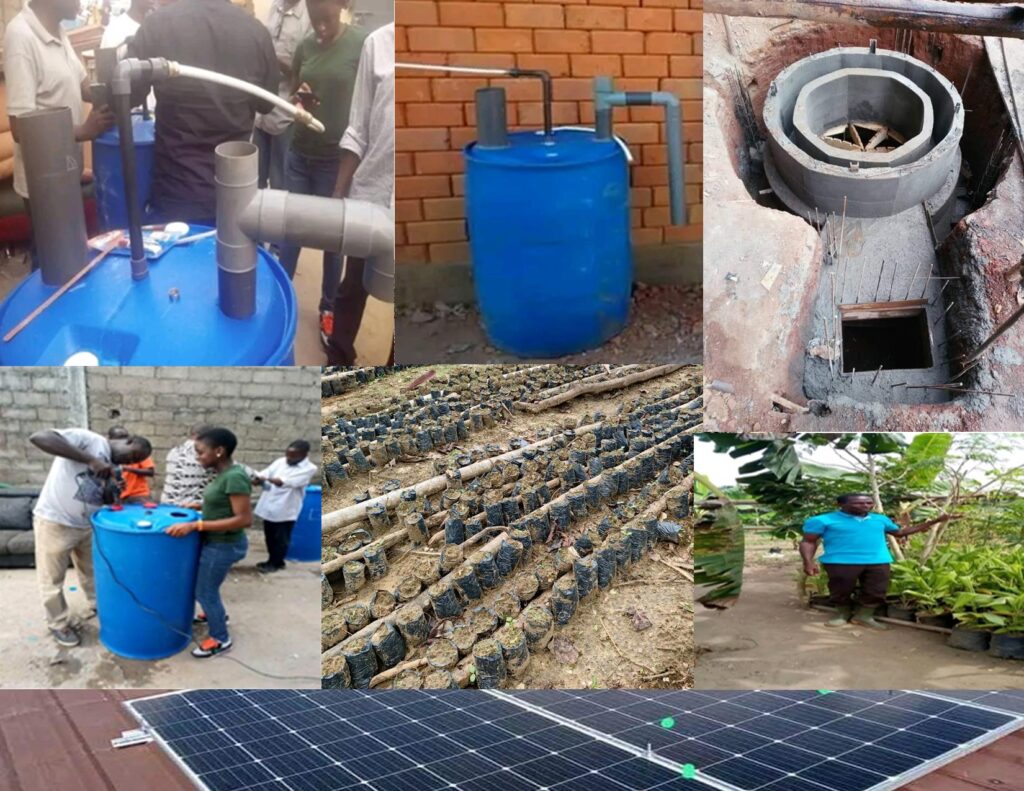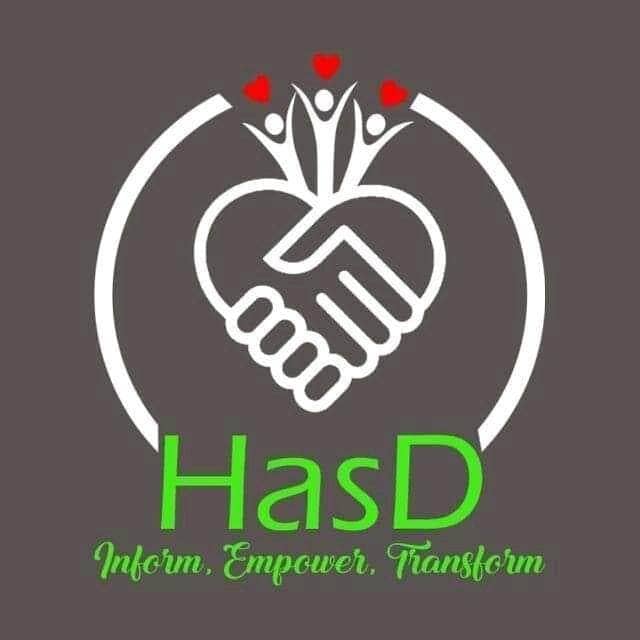PROGRAMS

Agriculture
Cameroon like many other African countries is blessed with
rich agricultural potentials. Unfortunately these potentials remain largely
untapped and majority of poor peasant farmers face challenges like lack of farm
inputs, poor road networks, limited information on modern farming techniques
and limited resources.
Objective: to
contribute to increasing food security and ending hunger amongst poor
communities is by training them on sustainable agriculture and supporting them
with micro-credit and material to set up their farms as follows;
-
We train peasant farmers and out of school
unemployed youths on modern farming techniques (BIOFARMS)
-
Developing urban and peri-urban agriculture.
-
Insertion of trainees through provision for start-up
capital and materials
Challenges
·
Insufficient
funds to help in the insertion of trainees
·
Owing
to the fact that training is pro poor, funds are insufficient to get materials
as majority of trainees cannot afford registration
The way forward
Training of
peasant farmers and unemployed youths continues while HASD keeps outsourcing
ways to get more funding to meet up with afore mention challenges.
EDUCATION
Primary and
secondary education is normally free in government schools in Cameroon and
other African countries but the burden of providing learning infrastructure and
sufficient teaching staff falls on predominantly on parents and communities
especially rural and urban poor communities. As a result, many of these
communities have inadequate school infrastructure, insufficient /unequipped classrooms,
insufficient trained teachers, and lack of water and sanitation in schools. This
leads to overcrowded classrooms, poor performance amongst pupils and students,
high rate of school dropouts, and risky learning environments.
Objective
To
contribute towards an inclusive and equitable education that promotes lifelong
learning opportunities for all through the construction, rehabilitation and
equipping of dilapidated educational structures and provision of scholarships
to underprivileged children. We do this by:
-
Improving
school infrastructures in rural and urban poor schools by constructing
classrooms, rehabilitation and equipping of dilapidated structures and the
construction of modern toilet blocks.
-
Providing
scholarships to underprivileged children at nursery, primary secondary schools
and higher institutions of learning.
-
Improving
water and hygiene situations in schools by providing solar water pumping
systems in schools.
Challenges:
HASD have
earmarked far more schools in need in Africa than expected.
The way forward
HASD hope to
source funding from partners to address the situation.

HEALTH
Good health
is an important component of life and development. It has been enshrine in the
MDG4 (reducing child mortality) MGD5 (improving maternal health), MGD6
(combating malaria, HIV /AIDS and other diseases). Globally, there is s huge
disparity in access health services in rural areas compared to urban areas.
Objective
To improve
the health status of people living in poor communities through the training of
nurses for poor community health centers, rehabilitation/equipping of health
centers in rural areas and the introduction in those poor communities. We do
this by:
·
Sponsoring
the training of nurses in recognized health institutions to work in poor
community health centers upon graduation.
·
Construct/rehabilitate
and equip health centers in poor communities.
·
Provide
portable water using solar water pumping systems and modern toilets to health centers in poor
communities.
·
Provide
solar infant incubators to poor rural communities to reduce infant mortality.
Achieveme
Challenges
·
Many
poor communities are unable to compensate nurses. This creates difficult
situations for nurses who must have to sustain themselves while working.
·
Many
health centers are in dare need of electricity and incubators to handle
difficult child birth situations and HASD is yet to secure funding to start
helping them
The way forward
HASD hopes
to source funds to be able to reach out to as many as possible to poor
communities through partnership and strategies.

SOCIAL WELFARE
In Africa,
persons living with disabilities still face several problems which have
remained unattended for quite a long time with no proper mechanism to curb
them. These challenges include living under extreme poverty, high unemployment
rate, and poor provision of education and health services. The high poverty
rate of disability persons is quite alarming and has tended many of them to
street beggars. This is accelerated by to lack of opportunities for this group
of people. If people with special needs are given opportunities, they can
support themselves and make valuable contributions to the society and the
economy. Therefore HASD provides rehabilitation and training to people with
special needs to enable them reach their full potentials.
Objectives
To create
rehabilitation centers for people living with special needs and give them life
skills training and rehabilitation activities so as to enable them become
financially independent.
We do this
by;
·
Establishing
a vocational rehabilitation centers where people with special needs are trained
with life skills that are adaptable to their disabilities.
·
Provision
of start-up materials to graduate to set up their workshops.
Challenges
·
Difficulties
in sourcing adequate funding to provide all the necessary seed capital.
·
Difficulty
in acquiring equipment at the rehabilitation training center.
·
Difficulty
in providing their needs while at the center.

VOLUNTEERING
To help the young and the older people gain experience in the
work place for development, as well as to support the organization to attain
its objectives, HASD is providing opportunities for both national and
international volunteers.
Challenges
Volunteers do not always have specific skills that employees
would always hire.
The way forward
HASD will always provide opportunities for volunteers and
interns to gain skills in development work and become marketable in the job
markets

WATER AND SANITATION
Water is one of the most valuable and influential natural
resource because of domestic and economic importance. Access to clean water is
essential to sustain life. Unfortunately according to UNICEF, only about 45% of
people in rural areas in Cameroon have access to good drinking water. Many
communities rely on doubtful water sources which are at times shared with
animals. Moreover, people in these communities trek long distances to get
drinking water,
Objective
To ensure the availability and sustainable management of
water and sanitation for all through the provision of portable water and
construction of toilets with hand washing facilities for rural and urban poor communities,
health centers and schools. This will be done by;
·
Provision
of water through either gravity, protected wells or boreholes using solar water
pumping systems to rural poor communities.
·
Provide
solar water pumping systems for irrigation and mechanized agriculture to ensure
food security.
Challenges
·
Bad
roads to some communities and limited transportation means
·
Insufficient
funds for the running and execution of projects
·
Excessive
population pressure to the detriment of water catchments.
·
The
needy communities are alarming.
The way forward
HASD will
keep sourcing for funds from partners and benefactors to improve water
situation in rural and urban poor communities.

ENVIRONMENTAL
PROTECTION AND TECHNOLOGICAL DEVELOPMENT.
Current environmental trends are a global call
for concern. The rate of environmental degradation is fast surpassing our
ability to control climate change; pollution, deforestation, and soil erosion
are some of these challenges mankind faces.
Objective
To promote
environmental sustainability, we train target groups on environmental protection
and management and by mainstreaming environmental awareness in our respective
programs. We do this by;
· Promoting the use of renewable energy
through creation of classical training centers in respective countries.
· Training and supporting of unemployed
youths, farming communities’ leaders, women groups and youths on smart
agriculture.
· Protection of water catchments.
Achievements
We have trained more
than 300 youths in solar, wind turbine and biogas installations in some African
countries like Cameroon, Nigeria, Benin, Togo and Niger.
We have also developed
innovative sewage treatment system to manage liquid wast. We build biofil and
biodigester toilet system for households, schools, hospitals and markets
Challenges
Communities in need of
renewable energy training and facilities surpass our means to provide them. We
also have limited resources to assist schools in their environmental programs.
The way forward
· We continue to train people in the use
of renewable forms and installations in different communities
· Continue to promote our energy clubs
in schools program in both rural and urban poor schools.
Primary and secondary
education is normally free in government schools in Cameroon and other African
countries but the burden of providing learning infrastructure and sufficient
teaching staff falls on predominantly on parents and communities especially
rural and urban poor communities. As a result, many of these communities have
inadequate school infrastructure, insufficient /unequipped classrooms,
insufficient trained teachers, and lack of water and sanitation in schools.
This leads to overcrowded classrooms, poor performance amongst pupils and
students, high rate of school dropouts, and risky learning environments.
Objective
To contribute towards
an inclusive and equitable education that promotes lifelong learning
opportunities for all through the construction, rehabilitation and equipping of
dilapidated educational structures and provision of scholarships to underprivileged
children. We do this by:
- Improving school infrastructures in
rural and urban poor schools by constructing classrooms, rehabilitation and
equipping of dilapidated structures and the construction of modern toilet
blocks.
- Providing scholarships to
underprivileged children at nursery, primary secondary schools and higher
institutions of learning.
- Improving water and hygiene
situations in schools by providing solar water pumping systems in schools.
- Constructing Biofil
and biodigester toilets in schools to manage liquid waste. This helps to
improve school hygiene and check a good number of diseases such as cholera
pandemic that is rampant amongst school children.
Challenges:
HASD have earmarked far
more schools in need in Africa than expected.
The way forward
HASD hope to source
funding from partners to address the situation.

F.A.Q.
Lorem ipsum dolor sit amet.
Lorem ipsum dolor sit amet, consectetur adipiscing elit. Ut elit tellus, luctus nec ullamcorper mattis, pulvinar dapibus leo.
Lorem ipsum dolor sit amet, consectetur adipiscing elit. Ut elit tellus, luctus nec ullamcorper mattis, pulvinar dapibus leo.
